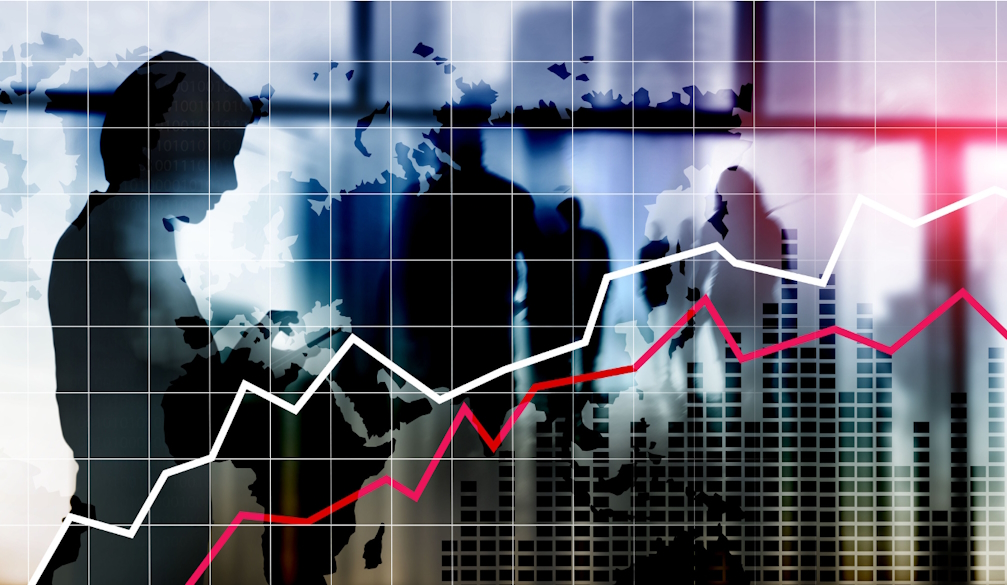This is the weakest economy outside of a recession. Here’s what the GDP figures show
- Written by Stephen Bartos, Professor of Economics, University of Canberra

The latest national accounts show the Australian economy is struggling. It’s what you would expect after the sharpest[1] series of interest rate rises on record, and is more or less what the Reserve Bank was trying to achieve to bring down inflation.
Australia’s gross domestic product grew just 0.2%[2] in the three months to June, after growing 0.2% in the previous three months (upgraded from an earlier estimate of 0.1%) and 0.2% the three months before that.
So low is the run of low growth that the economy grew just 1% over the year to June. That’s the lowest annual growth outside of a recession since the mid-1980s.
We are not in recession as commonly defined: two consecutive quarters of negative growth. Nor are we in the broader definition[3] of a recession favoured by the Reserve Bank, one accompanied by a significant increase in unemployment.
That is actually one of the positives at present – unemployment remains low. Nevertheless, it feels like a recession for many Australians.
GDP per capita has been falling for six consecutive quarters. This means this measure of living standards has been falling for 18 months – a record since the Bureau of Statistics began publishing GDP per capita in the early 1970s.
Were it not for population growth, GDP would be going backwards. Population growth has been keeping the economy afloat.
Australians who oppose immigration might want to reflect on whether they would prefer a recession.
Public sector spending has also been shoring up the economy. It contributed 0.4 percentage points to the quarterly economic growth figure of 0.2%, meaning that without it the economy would have also gone backwards.
In the words of Treasurer Jim Chalmers at the national accounts press conference:
Without growth in government spending, there would have been no growth in the economy at all.
Chalmers said the weak growth figure
vindicates the approach we took in the budget and frankly torpedoes a lot of the free advice we got at budget time to cut harder and harsher.
Chalmers conceded that cutting government spending rather than expanding spending in the May budget would have brought inflation down faster, but said he wanted to do it in a way that didn’t “smash people or weaken an economy which is already very soft and subdued”.
Inflation is coming down, although the Reserve Bank says it is not yet confident it is moving sustainably[4] towards its target range.
My assessment is that to make much of a difference to that trajectory the government would need to cut spending by billions of dollars, enough to bring on a recession. For obvious reasons, the government does not want that.
Consumer spending is very weak. Household spending per capita has declined for five out of the past six quarters.
In part, this is because of mortgage rate increases and also because wage growth has been unusually weak relative to price growth, cutting the amount households have to spend.
The national accounts confirm households have as good as stopped saving.
The household saving ratio remained at 0.6% of income. That’s way down from the peak of 24.1% reached during the COVID lockdowns.
Australia is hostage to overseas events. Weakness in the Chinese building industry is reducing demand for Australian iron ore and other exports, which has a flow-on effect on how our economy performs.
These are things about which we can do precisely nothing.
China’s population has been shrinking[5] for two years now. It’s a good thing for the global environment, but means we are less likely to see the sustained and very high rates of Chinese housing construction that buoyed demand for Australian iron ore and other commodities in previous decades.
The terms-of-trade figures in the national accounts show the price Australia receives for what it sells overseas has been shrinking relative to the price it pays for what it buys from overseas for the past two quarters.
The only way to sustainably boost the economy while bringing down inflation is to lift productivity, the amount we produce per hour.
The national accounts show this measure of productivity fell again in the three months to June.
Innovation, more effective regulation, fostering more competition, and controlling monopolies can all help build productivity.
The government and its advisers know this. The tricky bit is doing it.
References
- ^ sharpest (www.datawrapper.de)
- ^ 0.2% (www.abs.gov.au)
- ^ broader definition (www.rba.gov.au)
- ^ sustainably (www.rba.gov.au)
- ^ shrinking (www.worldometers.info)

















